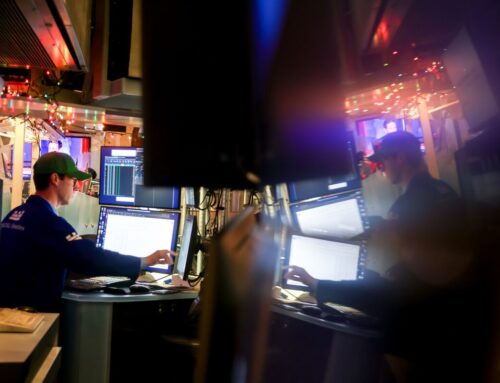Amazon’s Jeff Bezos has an electric vehicle company, making him even more like Tesla’s Elo
April 8, 2025
1h
For all their big ideas, American tech billionaires Jeff Bezos, Elon Musk, and Mark Zuckerberg spend a lot of time working on the same ideas.
To wit: TechCrunch just reported that Amazon founder Jeff Bezos has been secretly funding an electric vehicle company called Slate Auto, bringing him closer in league with his nemesis, Tesla CEO Elon Musk.
In true comic book fashion, Bezos and Musk also have matching space companies, Blue Origin and SpaceX, respectively.
Both billionaires also have media companies: X, formerly Twitter, for Musk and The Washington Post for Bezos. And Amazon is reportedly making a last-minute play to buy TikTok, which would make Bezos and Musk both leaders of social media companies.
The odd man out here? Meta CEO Mark Zuckerberg.
Zuckerberg, like the others, has a social media company. (Everyone’s company, of course, considers itself an AI company.) Earlier this year, to join the club, Zuckerberg began a foray into AI-powered humanoid robots, much like Tesla’s Optimus venture and the everyday robotics happening in Amazon warehouses.
Yet, it’s now apparent that Zuckerberg isn’t like the other guys: he doesn’t have an EV or a space company — yet.
Photo credits: Andrew Harnik (Musk), Taylor Hill (Bezos), and Drew Angerer (Zuckerberg) via Getty Images.
More Tech
5h
Apple has erased nearly a year’s worth of market cap gains
Thanks in large part to ongoing tariff escalations between the US and China, Apple has erased pretty much all of the market cap it built up over the last year. At the end of 2024, Apple was worth nearly $4 trillion. Now, after the White House confirmed 104% tariffs on China, where the vast majority of iPhones are made, Apple’s market cap is about $2.65 trillion, or nearly a trillion and half less than it once was.
5h
Apple hits new lows this year on 104% China tariffs
Apple hit a new low for the year after news that the US would indeed impose 104% tariffs on China, where the company produces many of its products. Apple had already been reeling from the 54% reciprocal tariffs, which could increase the price of iPhones by hundreds of dollars, before the latest round of retaliatory tariffs.
In a rare bit of good news for Apple, it seems the tariffs have finally pushed consumers to buy new iPhones, if only to avoid higher costs later.
7h
Meta scrambling to defend its AI after Llama 4 benchmark bungle
This weekend, Meta surprised everyone and released two flavors (“Maverick” medium and “Scout” small) of its highly anticipated Llama 4 AI model. Llama 4’s release is a big deal, as the company has been hyping it up as the key to its AI plans in the coming year.
When a major new model drops, people do two things: check to see how the model scored on major benchmarks, and load up the model and kick the tires.
Llama 4’s benchmark scored some eye-popping results for ChatbotArea, a popular human-powered benchmark that’s a sort of blind taste test for AI models with side-by-side results. But after looking at the fine print, some in the community cried foul, as Meta achieved the higher score using an “experimental chat version” of Llama 4 that was not available to the public.
A footnote to a chart that highlighted Llama 4’s standout score read “LMArena testing was conducted using Llama 4 Maverick optimized for conversationality.”
In response to the controversy, LMArena (which runs the Chatbot Arena benchmark) updated its guidelines for testing:
“Meta’s interpretation of our policy did not match what we expect from model providers. Meta should have made it clearer that ‘Llama-4-Maverick-03-26-Experimental’ was a customized model to optimize for human preference. As a result of that we are updating our leaderboard policies to reinforce our commitment to fair, reproducible evaluations so this confusion doesn’t occur in the future.”
This led to some unfounded accusations that Meta had trained its model on test datasets — akin to giving a kid the answers to a quiz before having them take the test.
To quell the firestorm of questions surrounding the model’s release, Meta’s head of generative AI, Ahmad Al-Dahle, refuted the claims in a post on X yesterday.
The release was also unusual for what was missing from the release: the extra-large version of the model named “Behemoth.” Meta said the model was still being trained, but boasted about its performance nonetheless.
“Llama 4 Behemoth outperforms GPT-4.5, Claude Sonnet 3.7, and Gemini 2.0 Pro on several STEM benchmarks. Llama 4 Behemoth is still training, and we’re excited to share more details about it even while it’s still in flight.”
Meta did not immediately respond to a request for comment.
8h
Ives: Why we can’t “just make this in the USA”
Commerce Secretary Howard Lutnick promised over the weekend that President Trump’s tariffs would bring production of things like the Apple iPhone to the US. Wedbush analyst Dan Ives disagrees, saying tariffs on Chinese goods — which could be more than 100% — would be unlikely to force production to US and in the meantime would create a “category 5 price storm for the US consumer” and lots of pain for American tech companies.
“Saying we can just make this in the USA is a statement that incredibly understates the complexity of the Asia supply chain and the way electronics/chips/semi fabs/hardware/smartphones, etc. are made for US consumers over the last 30 years. It’s the foundation the US tech world is built on and these tariffs are flipping a boat upside down in the ocean with no life rafts telling US tech/auto companies such as Apple, Nvidia, Microsoft, GM, AMD among so many others ‘good luck!’”
He called the tariffs the “biggest debacle ever seen in the markets” and “purely self-inflicted by Trump.”
“It’s very easy to say ‘build in America’ behind a microphone in the Beltway… the reality is so much different it’s almost a scary concept. It takes 4-5 years to build a factory in the US, the US labor force and cost structure goes against the entire concept of the modern supply chain, much of the IP and technology fueling the supply chain is cemented in Asia, and the reality this ‘near-term pain’ would take a decade to even move the needle. If US tech companies are faced with this reality, it will negatively change the tech landscape for decades to come.”
10h
Tariffs are momentarily good for Apple as customers rush to buy iPhones before prices rise
In the long run, tariffs on imports from China and other places where Apple manufactures its goods are bad news for the iPhone maker, as the tariffs could add hundreds of dollars to the cost of producing an iPhone. But in the short term, the specter of higher prices is driving consumers to upgrade their iPhones now to avoid higher tariff-related price tags later, The Wall Street Journal reports.
Apple had been struggling with sluggish iPhone demand thanks in part to its botched rollout of artificial intelligence features, and now the tariffs are cleaving market cap from the company. But hey, at least they got people to finally buy new iPhones!
Latest Stories
Sherwood Media, LLC produces fresh and unique perspectives on topical financial news and is a fully owned subsidiary of Robinhood Markets, Inc., and any views expressed here do not necessarily reflect the views of any other Robinhood affiliate, including Robinhood Markets, Inc., Robinhood Financial LLC, Robinhood Securities, LLC, Robinhood Crypto, LLC, or Robinhood Money, LLC.
- Privacy Notice
- Disclosures
- Terms and Conditions
- Editorial Standards
- Masthead
- Your Privacy Choices
- Advertising Disclaimers
©2025 Sherwood Media, LLC
Search
RECENT PRESS RELEASES
Related Post




